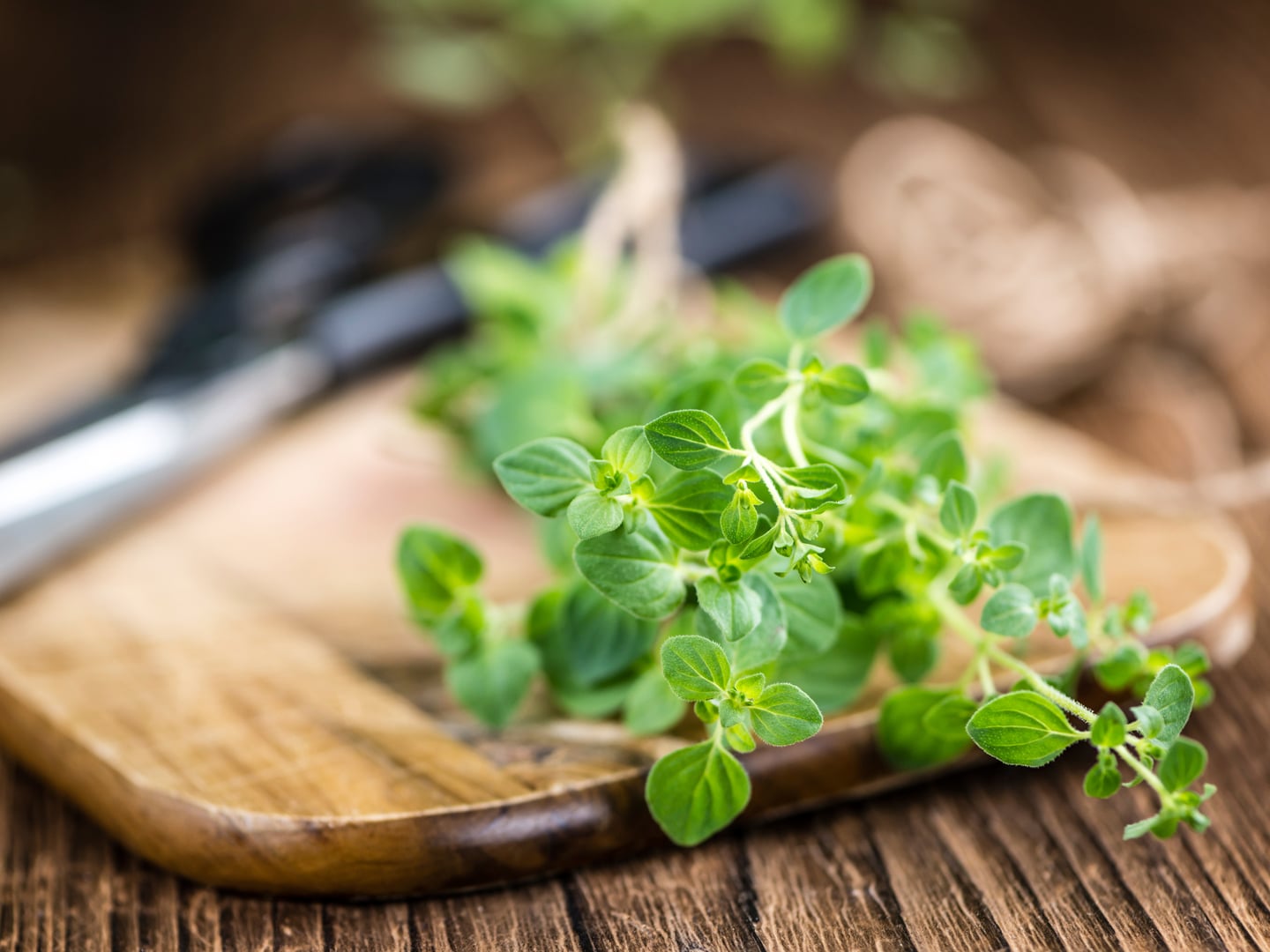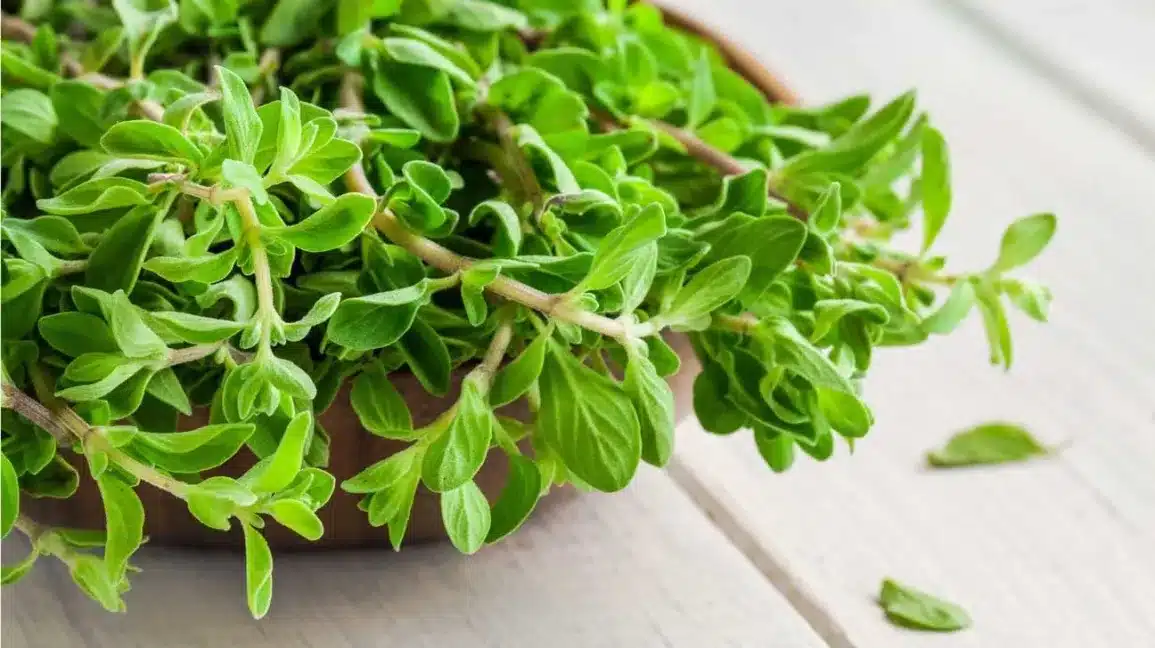What is marjoram used for medicinally?

Unveiling the Medicinal Marvels of Marjoram
Marjoram, scientifically known as Origanum majorana, has long been celebrated not only for its culinary contributions but also for its myriad medicinal properties. In this exploration, we delve into the rich tapestry of marjoram’s medicinal uses, ranging from traditional remedies to contemporary applications, unveiling the herb’s potential in supporting various aspects of health and well-being.
Historical Roots in Traditional Medicine
Marjoram’s medicinal journey begins with its historical roots in traditional medicine. Ancient civilizations, including the Greeks and Egyptians, valued marjoram for its purported therapeutic benefits. The herb was often employed to address digestive issues, soothe respiratory discomfort, and promote overall vitality. These early applications laid the foundation for marjoram’s enduring reputation as a botanical ally in the pursuit of health.
Digestive Harmony: Marjoram’s Soothing Touch
One of marjoram’s prominent medicinal uses is in promoting digestive harmony. The herb’s carminative properties, attributed to compounds like terpinen-4-ol, may help alleviate bloating, gas, and indigestion. Traditionally, marjoram teas or infusions were consumed to ease digestive discomfort after meals. The herb’s gentle yet effective approach to digestive support has resonated through generations, making it a staple in herbal remedies for gastrointestinal well-being.
Respiratory Support: Marjoram’s Breath of Fresh Air
Marjoram has played a crucial role in respiratory health throughout history. Its aromatic compounds, released when the herb is ingested or its essential oil is inhaled, are believed to have expectorant properties. This makes marjoram a valuable ally in addressing respiratory challenges such as coughs and congestion. Whether used in herbal teas or incorporated into steam inhalation, marjoram’s breath of fresh air extends to supporting the respiratory system.
Calming Nervous Tensions: Marjoram’s Relaxing Embrace
Marjoram’s medicinal repertoire extends to the realm of mental and emotional well-being. Known for its calming properties, marjoram has been traditionally employed to soothe nervous tensions and promote relaxation. The herb’s essential oil, with its delicate floral notes, is often utilized in aromatherapy to create a tranquil atmosphere. Inhaling the scent of marjoram may induce a sense of calmness, making it a natural choice for those seeking emotional balance and stress relief.
Muscle Relaxation: Marjoram’s Comforting Touch
The potential muscle-relaxing properties of marjoram have earned it a place in traditional remedies for muscular tension and discomfort. When applied topically, marjoram oil diluted in a carrier oil may help ease muscle stiffness and soothe aching joints. This application is particularly valued by individuals dealing with conditions such as arthritis or those seeking natural solutions for post-exercise recovery.
Menstrual Comfort: Marjoram’s Supportive Influence
For women facing menstrual discomfort, marjoram has been historically utilized for its potential to provide relief. The herb’s anti-inflammatory and muscle-relaxant properties may contribute to easing menstrual cramps and promoting overall comfort. Whether incorporated into herbal teas or used in aromatherapy, marjoram’s supportive influence extends to women’s health and well-being.
Antioxidant Riches: Marjoram’s Cellular Guardianship
Marjoram boasts antioxidant compounds that contribute to its potential cellular guardianship. Antioxidants, including rosmarinic acid and quercetin, may help neutralize free radicals in the body, offering protection against oxidative stress. Incorporating marjoram into the diet or using its essential oil in skincare formulations harnesses the herb’s antioxidant riches, supporting overall cellular health.
Anti-Inflammatory Potential: Marjoram’s Natural Defense
The anti-inflammatory properties of marjoram have been a focal point in traditional medicine. Compounds like beta-caryophyllene found in marjoram contribute to its potential anti-inflammatory effects. While more research is needed, marjoram’s historical use as a natural defense against inflammation positions it as a botanical of interest in the pursuit of holistic health.
Culinary Integration for Medicinal Benefits
Beyond tinctures and infusions, marjoram’s medicinal benefits extend seamlessly into the culinary realm. The herb’s culinary integration allows individuals to enjoy its medicinal properties through everyday meals. Whether infused into soups, stews, or incorporated into teas, marjoram becomes a flavorful and health-promoting addition to culinary creations.
Marjoram’s Role in Modern Herbalism
In contemporary herbalism, marjoram continues to play a significant role. Herbalists and holistic practitioners incorporate marjoram into formulations addressing specific health concerns. From herbal teas and tinctures to topical balms and essential oil blends, marjoram’s diverse applications align with modern perspectives on holistic wellness.
Considerations and Precautions
While marjoram is generally considered safe for culinary and medicinal use, it’s essential to consider individual factors and potential interactions. Pregnant individuals, nursing mothers, and those with specific health conditions should consult healthcare professionals before incorporating concentrated forms of marjoram, such as essential oil, into their routines. As with any herbal remedy, moderation and awareness of individual sensitivities are key considerations.
Marjoram’s Potential in Cardiovascular Health
Exploring the potential benefits of marjoram in cardiovascular health unveils its role in supporting heart function. Certain compounds in marjoram, including flavonoids and potassium, may contribute to maintaining healthy blood pressure levels. While more research is needed to fully understand the extent of marjoram’s impact, its historical use suggests a connection between the herb and cardiovascular well-being.
Cognitive Support: Marjoram’s Impact on Brain Health
Emerging research suggests that marjoram may have cognitive-supportive properties. The herb’s anti-inflammatory and antioxidant components could play a role in promoting brain health and protecting against age-related cognitive decline. As interest in natural approaches to brain wellness grows, marjoram’s potential cognitive benefits become a topic of exploration in scientific studies.
Antimicrobial Properties: Marjoram’s Defense Against Pathogens
Marjoram has been historically recognized for its antimicrobial properties. Compounds like thymol and terpinen-4-ol contribute to marjoram’s potential as a natural defense against various pathogens. Whether used in aromatherapy to purify the air or applied topically in diluted form, marjoram’s antimicrobial attributes align with the broader interest in botanical solutions for immune support.
Sleep Support: Marjoram’s Contribution to Restful Nights
In the realm of sleep support, marjoram’s calming properties extend to fostering restful nights. Aromatherapy applications, such as diffusing marjoram essential oil before bedtime, may create a soothing environment conducive to relaxation. This holistic approach to sleep support aligns with the growing awareness of the interconnectedness between botanicals and quality sleep.
Marjoram in Holistic Dentistry: Oral Health Benefits
Marjoram’s potential benefits extend to holistic dentistry, where its antimicrobial and anti-inflammatory properties may contribute to oral health. Incorporating marjoram into natural oral care routines, such as oil pulling or mouthwash formulations, offers a botanical alternative for individuals seeking a comprehensive approach to dental well-being.
Marjoram’s Medicinal Symphony
In conclusion, marjoram’s medicinal symphony unfolds as a harmonious blend of digestive support, respiratory relief, and emotional well-being. From ancient healing practices to modern herbalism, marjoram’s diverse applications showcase its adaptability and enduring significance in the pursuit of holistic health. Whether sipped in a soothing tea, inhaled for relaxation, or savored in culinary delights, marjoram’s medicinal contributions continue to resonate through time, offering a fragrant path to well-being.
FAQ:
- What are the primary medicinal properties of marjoram?
- Answer: Marjoram is celebrated for its diverse medicinal properties, including digestive support, respiratory relief, calming effects, muscle relaxation, and potential benefits for cardiovascular and cognitive health.
- How is marjoram traditionally used for digestive issues?
- Answer: Marjoram’s carminative properties make it valuable for addressing digestive discomfort. Traditionally, marjoram teas or infusions have been consumed to ease bloating, gas, and indigestion after meals.
- Can marjoram help with respiratory issues, and how is it applied for such purposes?
- Answer: Yes, marjoram is believed to have expectorant properties that can aid respiratory health. It can be consumed in herbal teas or used in steam inhalation to help alleviate coughs and congestion.
- How does marjoram contribute to emotional well-being and relaxation?
- Answer: Marjoram’s calming properties, particularly in its essential oil form, make it a popular choice for aromatherapy. Inhaling the scent of marjoram may induce a sense of calmness and relaxation, promoting emotional well-being.
- Can marjoram be used topically for muscle relaxation, and what is the recommended application method?
- Answer: Yes, marjoram oil diluted in a carrier oil can be applied topically for muscle relaxation. Gently massage the diluted oil onto the affected areas to help ease muscle stiffness and soothe aching joints.
- Is marjoram beneficial for women’s health, particularly during menstruation?
- Answer: Yes, marjoram has been traditionally used to provide relief from menstrual cramps. Its anti-inflammatory and muscle-relaxant properties may contribute to easing discomfort. It can be consumed in teas or used in aromatherapy.
- What is the role of marjoram in supporting cardiovascular health?
- Answer: Marjoram contains compounds like flavonoids and potassium that may contribute to maintaining healthy blood pressure levels, supporting cardiovascular health. Research is ongoing to explore the extent of its impact.
- Can marjoram essential oil be used for cognitive support, and how is it applied?
- Answer: Emerging research suggests that marjoram may have cognitive-supportive properties. Marjoram essential oil can be diffused in aromatherapy sessions to potentially promote brain health and protect against cognitive decline.
- Does marjoram have antimicrobial properties, and how can it be used for immune support?
- Answer: Yes, marjoram has historically been recognized for its antimicrobial properties. It can be used in aromatherapy to purify the air or applied topically in diluted form for potential immune support.
- Are there any precautions or considerations when using marjoram for medicinal purposes?
- Answer: While marjoram is generally considered safe, pregnant individuals, nursing mothers, and those with specific health conditions should consult healthcare professionals before incorporating concentrated forms, such as essential oil, into their routines. Moderation and awareness of individual sensitivities are key considerations.
Related Posts
What does marjoram do for the body?
-
Posted by
akshita aishwarya
- 0 comments




This blog is a testament to the author’s deep understanding of their subject matter. Thank you for sharing your expertise with us.